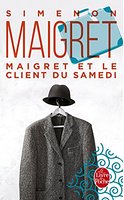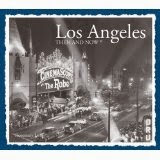WHERE DID I GET THAT FROM? – My Childhood Reading bug…. by Rosemary Lord
Luckily for me, I come from a family that loves reading, loves books.
My dad always had his head in a book: mostly mysteries. Shelves were lined with well-
thumbed Agatha Christie novels, Lesley Charteris’ Simon Templar The Saint books. Dad read George Simenon’s whodunits about Inspector Maigret, in English and in French. From my mum and sister, Angela, came the gateway to a swathe of other adventures.
Johanna Spyri’s Heidi is one of my earliest recollections. Even today, when things get too much, I think back to the grassy Swiss mountainside where young Heidi lived with her grandfather, her best friend was Peter-the-Goatherd and her diet was toasted bread and cheese washed down with milk straight from the goats. Yum!
 Edith Nesbit’s The Railway Children followed – three children, living alongside a railway track, trying to solve the mysterious disappearance of their father.
Edith Nesbit’s The Railway Children followed – three children, living alongside a railway track, trying to solve the mysterious disappearance of their father.
It was Enid Blyton’s books about The Famous Five – five young friends who get involved in school-holiday adventures – that got me interested in mysteries, long before I discovered the grown-up Agatha Christie titles.
My brother Ted says that, when he was old enough to join the local library, his Library Card was his proudest possession. “That first Saturday, I was allowed to take out The Secret Island (by Blyton). I dashed home and read it cover-to-cover. Later that afternoon I hurried back to the library to return it and take out another book. The Librarian told me I could only take out one book a day! I was devastated.”
I graduated to one of my sister’s favorite authors, Noel Streatfeild. Ballet Shoes was the first in the tales of three orphaned girls enrolled in a dance academy. Each girl’s dream takes them in different directions. My sister wanted to be a ballet dancer – I harbored secret dreams of being an actress, at that time.

While, on the other side of The Pond, American girls steeped themselves in the adventures of Nancy Drew, I had now discovered Pamela Brown’s book, The Swish of the Curtain. This was a series about seven stage-struck children who form an amateur theatre company. Brown was 16 years old when she finished this, her first novel. Her income from the book paid for her to attend R.A.D.A and become an actress.
It was Brown’s book, Maddy Alone, that took me in a different direction. When a film company arrives in the local town to shoot, Maddy is ‘discovered’ to play a big role in the movie. I then realized that it was movie-acting that I really wanted to pursue.
As a side-line, I loved the rebellious, naughty adventures of Pippi Longstocking, by Astrid Lindgren, and followed her fashion sense: the freckles I had in spades and I liked pigtails and her red-and-white striped stockings.
As I grew older, I raided dad’s Agatha Christie collection, then onto his F. Scott Fitzgerald and Raymond Chandler books. Ah! ‘America here I come,’ was my new song.
With a steady diet of Hollywood Movies on Sunday Matinee on ‘the telly,’ a direction began to emerge.
So I did start out as an actress in England on ‘the telly,’ on stage and in films – amidst 101 boring ‘temp’ jobs. I wrote articles for the English magazines to pay my way, never thinking for one minute that I would ever really be taken seriously as a writer.
I ended up in Hollywood working as an actress for years. At the same time I was writing articles about Old Hollywood, becoming more and more hooked on the history and the mysteries of Tinsel Town. Until I finally became a published author with Los Angeles Then and Now, followed by Hollywood Then and Now. The world of acting was a fading image in my rear-view mirror. Who needs acting!
With the lectures and conferences I attended, I was introduced to an amazing new world of writers. Many were mystery writers. We spoke the same language. They were immediately encouraging, supportive and generous with their knowledge. I began to write mysteries set in Old Hollywood. I finally felt at home.
Today, when I meet up with my family, we still talk books and writers – just as I do with my writer friends here in Los Angeles.
Lucky for me, the seed was planted early in our family. I think we learned to read almost before we were big enough to hold the books.
So, fellow bloggers and dear readers, what are your earliest memories of reading? The first books you read? Which books had the most influence on your growing up – on your life? I’d love to hear the American counterparts of my literary diet.












